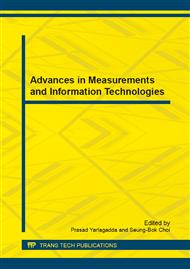p.502
p.506
p.512
p.517
p.522
p.526
p.530
p.534
p.540
A Composite Kernel for Word Sense Disambiguation
Abstract:
The success of supervised learning approaches to word sensed disambiguation (WSD) is largely dependent on the representation of the context in which an ambiguous word occurs. In practice, different kernel functions can be designed according to different representations since kernels can be well defined on general types of data, such as vectors, sequences, trees, as well as graphs. In this paper, we present a composite kernel, which is a linear combination of two types of kernels, i.e., bag of words (BOW) kernel and sequence kernel, for WSD. The benefit of kernel combination is that it allows to integrate heterogeneous sources of information in a simple and effective way. Empirical evaluation shows that the composite kernel can consistently improve the performance of WSD.
Info:
Periodical:
Pages:
522-525
Citation:
Online since:
February 2014
Authors:
Price:
Сopyright:
© 2014 Trans Tech Publications Ltd. All Rights Reserved
Share:
Citation:


